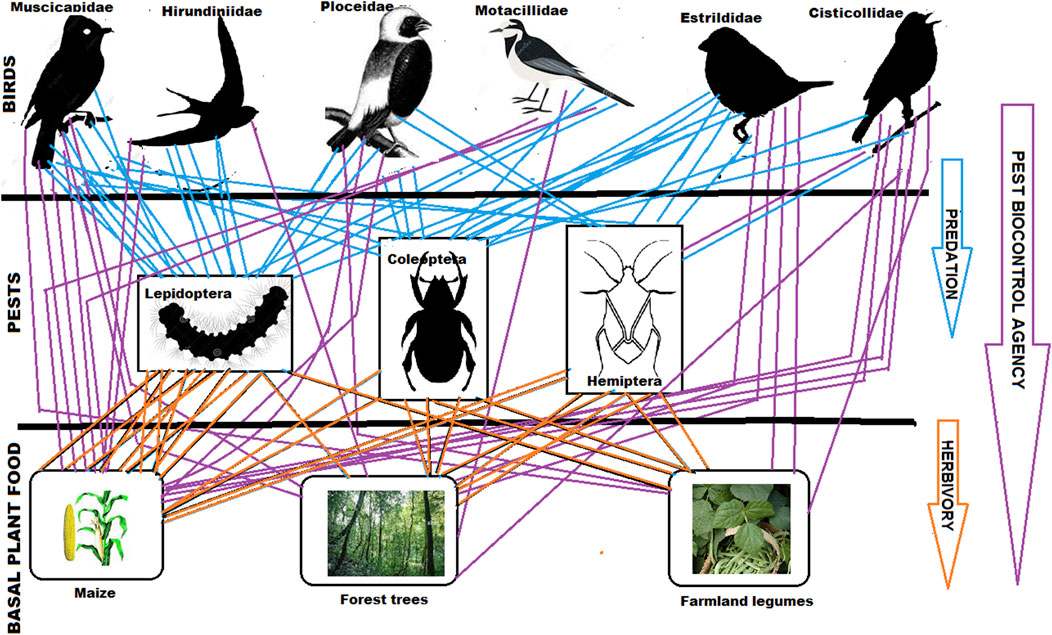- This topic is empty.
- AuthorPosts
- Febuari 12, 2025 at 10:58 mu #562177

The role of birds in agriculture as natural pest controllers has been recognized for centuries. In recent years, the importance of these creatures in managing pest populations across different crops has gained increased attention.
As natural agents of pest control, birds provide an eco-friendly alternative to chemical pesticides, which are harmful to both the environment and human health.
Their effectiveness, however, varies depending on the type of crop being grown. This article delves into the crop-specific effectiveness of birds as agents of pest control and highlights how their presence can influence crop health and yields.
1. Role Of Birds In Pest Control
Birds serve as effective predators for a wide variety of pests that attack agricultural crops. Their feeding habits include consuming insects, rodents, and even small reptiles, which are known to damage crops. As natural pest controllers, birds help to reduce the need for chemical pesticides, lowering the environmental impact of farming practices.
Many bird species are opportunistic feeders, meaning they will target different types of pests based on availability, making them versatile in pest control across various agricultural landscapes.
The presence of birds in farming environments can contribute to pest regulation, enhancing the overall sustainability of crop production.
2. Influence Of Crop Type On Bird Pest Control Effectiveness
Not all crops benefit equally from the presence of birds. The effectiveness of birds as pest controllers is significantly influenced by the type of crop being grown.
For instance, birds may be more effective in controlling pests in crops like cereals, vegetables, and fruit orchards compared to other types.
Crops that attract a high abundance of pests, such as insects and small mammals, can see greater benefits from bird predation. In contrast, crops that are less susceptible to pest damage may not benefit as much.
This highlights the importance of considering crop-specific dynamics when assessing the potential of birds as natural pest controllers.
3. Birds In Fruit Orchards And Their Impact On Pest Populations
Fruit orchards, with their abundance of pests like aphids, caterpillars, and fruit flies, can benefit significantly from the presence of birds.
Certain bird species, including sparrows and warblers, have been observed foraging in orchards, reducing pest populations and improving fruit quality. Birds target not only the adult pests but also their larvae, which are often the most damaging to fruit crops.
The role of birds in these environments goes beyond just pest control; their presence helps maintain a balance between pest populations and promotes a healthier orchard ecosystem. This contributes to increased fruit yields and reduces the reliance on chemical insecticides.
4. Effectiveness In Grain And Cereal Crops
Grain and cereal crops, such as wheat, corn, and rice, also benefit from birds in pest control. Birds like starlings and blackbirds are known to target pests such as aphids, beetles, and caterpillars, which can significantly damage these crops.
While some birds may consume seeds or grains directly, many species help regulate pest numbers, preventing crop damage during critical growth stages.
In regions where chemical pesticide use is limited or not preferred, birds act as crucial natural pest regulators. The overall effect is improved crop health and a reduction in pest-related losses, making birds indispensable in maintaining the productivity of cereal crops.
5. Challenges And Limitations Of Bird-Based Pest Control
While birds can be highly effective in controlling pests, there are challenges and limitations to their role in agriculture. One of the primary limitations is the seasonal variation in bird populations, which can affect their ability to consistently regulate pests throughout the growing season.
Additionally, not all bird species are equally efficient in targeting specific pests. Some crops may also attract birds that can become pests themselves, such as when birds consume grains or fruits directly.
Understanding the specific ecological dynamics of both the birds and the crops is essential to maximizing the benefits of bird-based pest control.
The crop-specific effectiveness of birds as agents of pest control is a fascinating subject that underscores the intricate relationship between agriculture and nature. Birds contribute significantly to pest management, particularly in fruit orchards, cereal crops, and vegetable fields.
However, the level of their effectiveness depends on various factors, including the type of crop and pest species involved. By recognizing the unique needs of different crops, farmers can harness the power of birds to promote sustainable and eco-friendly pest control practices.
In conclusion, integrating birds into agricultural pest management strategies can be an invaluable tool for improving crop health and yields while reducing the reliance on harmful chemical pesticides.
Read Also:Why Do Birds Eat Mosquitoes?
- AuthorPosts
- You must be logged in to reply to this topic.

